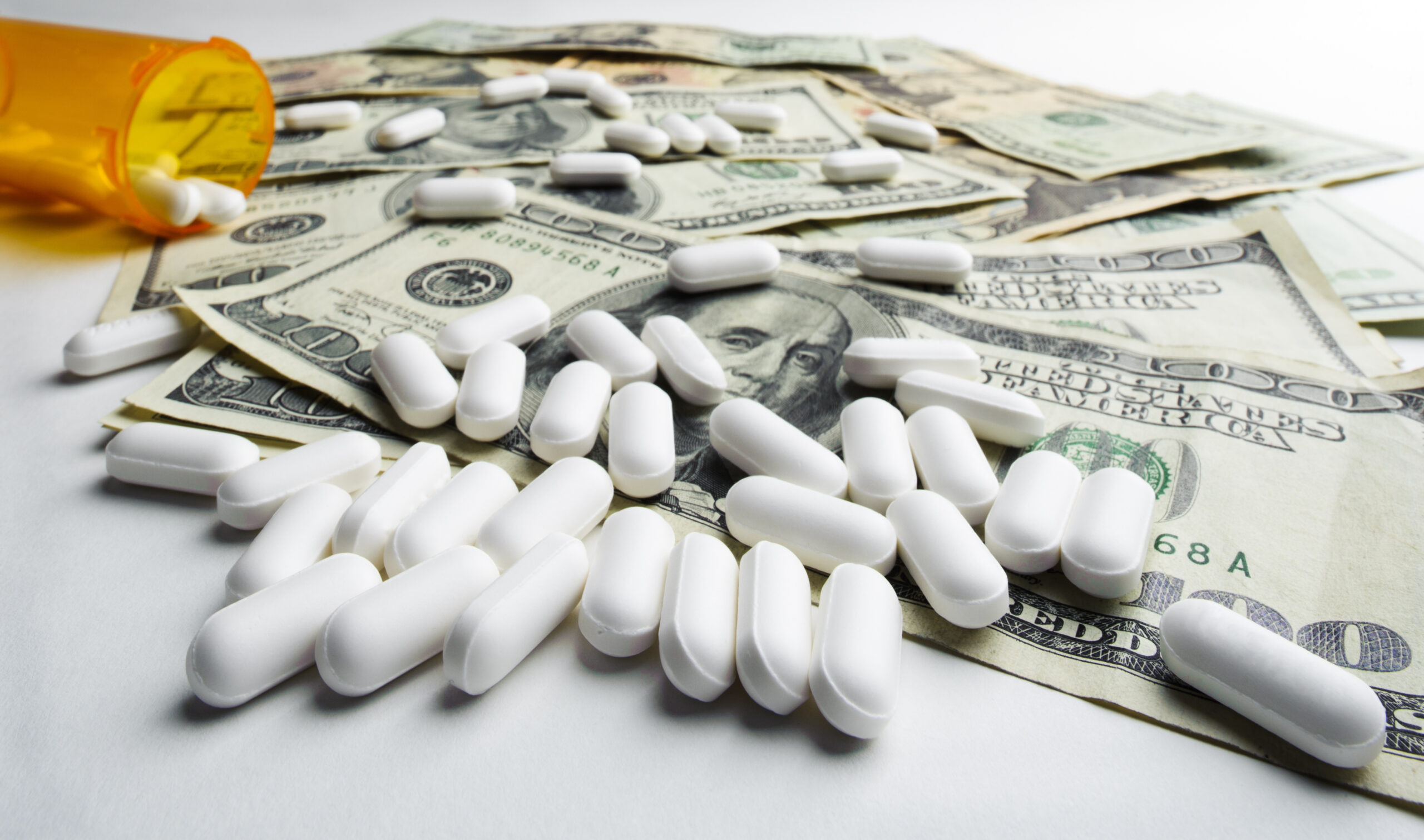© 2024 CSRXP- All Rights Reserved

Second Opinion: Rebate Rule Would be Revolutionary … For Big Pharma
Apr 5, 2019
Nothing in Proposed Rule Guarantees Prices Will Come Down by Full Amount of Rebates
On Thursday, U.S. Department of Health and Human Services (HHS) Secretary Alex Azar testified before the U.S. Senate Committee on Appropriations Subcommittee on Labor, Health and Human Services, Education and Related Agencies on HHS’ FY2020 budget request. When asked by Senator Jeanne Shaheen (D-NH) about the administration’s proposed Rebate Rule, which would eliminate the ability of pharmacy benefit managers (PBMs) to negotiate with drug makers for lower prices, Secretary Azar said:
“I can tell you that the rule that we have proposed to get these rebates out of the system and instead have those go as discounts to the patient at the pharmacy level would be revolutionary for the patients in the situation you’re talking about, especially classes like insulins or arthritis medicines or high cost cholesterol medicines that are very highly rebated now. You might have in some of those classes average 70 percent rebates.
“Imagine January 1 of 2020 when that patient walks in the pharmacy and this rule goes forward, they will get a 70 percent discount every time they fill that prescription. It’s a revolutionary change for patient access and affordability if we can get this through and I pray that we’ll have your support to help do that. It’s $29 billion of rebates that are going to PBMs – the pharmacy benefit managers – now that would go to patients starting January 1, 2020 if we can make this happen.”
In reality, there is no guarantee the Rebate Rule will lower drug prices — and in some cases may even raise them.
To start, nothing in the rule requires drug makers to lower list prices by the full amount of existing rebates or even at all. In fact, getting rid of rebates would give drug makers even more power to unilaterally determine price.
In February, seven executives from large, brand name pharmaceutical manufacturers testified before the U.S. Senate Committee on Finance in a hearing on drug pricing. When asked if they would lower prescription drug prices by the full amount of existing rebates if the Rebate Rule was enacted, all of them evaded a direct answer.
There is a further legal question, detailed by analysts at the firm Foley Hoag, of whether up-front discounts, the assumed mechanism for pharmaceutical manufacturers to lower prices in place of rebates, may violate antitrust laws. Those concerns could embolden drug makers as an industry to limit or decline to offer up-front discounts – citing the potential for litigation.
The fact is, PBMs are the only existing check in the system that successfully forces savings from Big Pharma.
PBMs achieve savings between 31 and 36 percent by negotiating manufacturer rebates and discounts, while their role encouraging generics and preferred brands results in additional savings between 11 and 15 percent. These savings are passed on to patients and consumers through lower out-of-pocket costs, lower premiums and lower tax dollars.
Big Pharma likes to paint PBMs as unnecessary “middlemen” that are jacking up the price of prescription drugs and pocketing the negotiated savings. But the problem is the list price – and drug makers are the ones that set list prices. Nobody else. What’s more, when it comes to drugs with few or no generic competitors, list prices remain largely unchanged by rebates.
The numbers don’t lie:
- 40 to 50 percent: PBMs save payers and patients between 40 and 50 percent on annual prescription drug costs. (“The Return On Investment [ROI] On PBM Services,” Visante, November 2016)
- $2,341: On average, PBMs produce savings of $2,341 per person per year in Medicare Part D. (“The Return On Investment [ROI] On PBM Services,” Visante, November 2016)
- $6-$1: PBMs reduce prescription drug costs by $6 for every $1 spent. (“The Return On Investment [ROI] On PBM Services,” Visante, November 2016)
- PBMs Reduce The Average Cost Of A Brand-Name Drug From $350 To $268. (“The Return On Investment [ROI] On PBM Services,” Visante, November 2016)
- In 2016, 89 Percent Of Drugs Had No Rebates. (Nicholas J. Johnson, Charles M. Mills & Matthew Kridgen, “Prescription Drug Rebates And Part D Drug Costs,” Milliman, 7/16/18)
And while the Rebate Rule offers no guarantee of reducing prescription drug prices, while eliminating an existing and effective check on Big Pharma, it also brings concrete negative impacts.
- According to the government’s own actuaries, Medicare Part D premiums would increase by 19 percent in 2020 alone and 25 percent overall.
- Federal spending would increase by $196 billion from 2020 to 2029, making it one of the most expensive regulations in U.S. history.
- Under the rule, government analysts find that Big Pharma will pocket the money they currently pay in rebates and use the rule as an opportunity to line their own pockets with an increased $137 billion in overall drug spending – a bailout that essentially rewards their anti-competitive behavior.
When patients are struggling to afford the medication they need to live, the last thing Big Pharma needs is more pricing power and a massive bailout on the backs of seniors and taxpayers – and that’s exactly what the Rebate Rule does.
CSRxP commends the Trump Administration for supporting market-based solutions to increase competition and lower prescription drug prices, including measures like the CREATES Act. CSRxP also supports an administration proposal to require greater list price transparency from drug makers in direct-to-consumer advertising.
But the Rebate Rule would be a huge step in the wrong direction and should be ditched.
###
